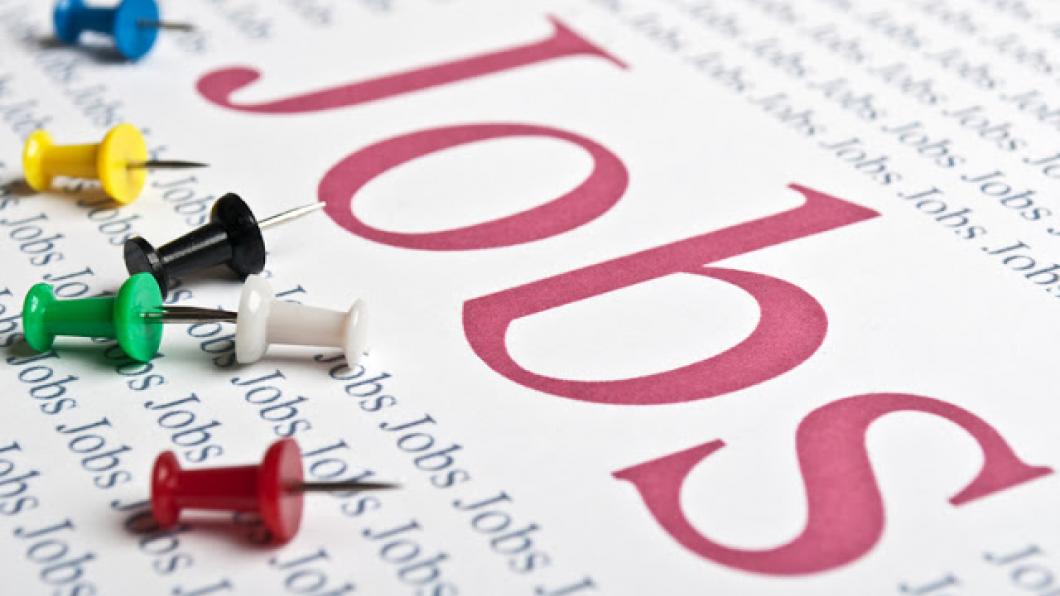
What do you say about your disability in a work interview?
By Jessica Geboers
I got my first paid writing gig with this very publication in March 2015. I had finished classes and was visiting my grandparents in California. When I got the email, I couldn’t wait to call home to tell dad that someone was going to pay me to write. I knew that he worried about me finding work.
That’s not to say that I wasn’t worried, but it’s different knowing your parents are concerned about your future. With a college diploma and university degree—both in journalism—I didn’t want to disappoint my parents after spending so much time and money in school.
I graduated from Ryerson University with a Bachelor of Journalism on June 7, 2015 and I’ve been looking for work ever since.
That’s not to say that I haven’t been writing. I’ve been writing and published pretty regularly over the past year on the topic of disability. I’m using my talent and love for writing to spread awareness on what I know best. It’s the dream. But I’m not sure I have the makings to be the kind of freelance writer who can juggle enough work to pay the bills.
So I’ve been on the hunt for a day job—full- or part-time. It’s a tough job market for anyone right now, especially recent grads. Gone are the days when a college diploma or university degree guaranteed our parents a job for life.
That’s difficult when people are this educated. It's even more challenging when I have to consider my physical and learning disabilities. Unlike a lot of people my age, I can’t really work retail or as a waitress or any other job that requires me to stand for long periods and carry heavy objects.
I can’t hide my cerebral palsy. I can only hope that employers aren’t blinded by assumptions about what I can and can’t do, and give me a chance based on my qualifications. So far, no one has come right out and said anything about my physical disability. But I can sometimes tell they’re surprised or uncomfortable when they first meet me.
My learning disability has been more of an issue at job interviews.
In school, a learning disability is challenging but manageable. We have rights to accommodation—for me this often meant copies of notes and extra time on tests. There are policies and people in place to help level the playing field. You just have to know who and what to ask for. However, at no point during my post-secondary education did anyone explain how to advocate for what you need in the workforce.
Thanks to the Accessibility for Ontarians with Disabilities Act, many employers state that they are equal opportunity employers who don’t discriminate against those with disabilities. Some, including the City of Toronto, have explicit policies and procedures for those who need accommodation during the hiring process. I appreciate and wish that all employers had clear policies for accommodation during job assessments.
Recently I’ve sat a few.
In two cases I was told I was just having an interview, but when I arrived, the employer asked me to take a test. The first time, because I hadn’t been given a heads-up, I felt unsure, uncomfortable and annoyed.
Usually, I need a bit of extra time, a computer, spell check and a calculator. Without them, I knew the test wouldn’t be a fair evaluation of my abilities. But I wasn’t sure I should tell the employer about my learning disability. Should I or shouldn’t I? I didn’t want to be taken out of the running. So I didn't.
The second time I was invited by email to a job interview for an administrative assistant, but when I got there it was an exam. In fact, there was no interview!
I was a bit thrown, but I figured I’d make the best of it. Then I eyed the math section on the test and my “can-do” attitude evaporated.
I’m terrible at math, thanks to my learning disability. My learning disability affects my comprehension, spelling, grammar and math skills. I’ve been able to find ways to manage the first three issues, but I’ve never found a way to wrap my mind around math.
In high school, I only took locally-developed and workplace level math. As a result, there was math on that job test that I’d never seen before. When I got home and told my roommate about the letters and brackets, she told me that was called algebra!
I did ask if I could use a calculator. When they said no, I asked if I’d be able to use a calculator on the job. Oddly, they said that would be fine. Throwing caution to the wind, I came clean and told them about my learning disability. They looked uncomfortable and told me to do my best. Not surprisingly, I didn’t get called back for an interview.
So while my search for a day-job continues, I’ve realized that I have nothing to lose, or be ashamed of, in being upfront about my learning disability. In future, if invited to an interview, I’ll ask if it includes an assessment. If it does, I’ll let people know about my disability before we meet.
From here on out I’ll look for, inquire about and follow any procedures necessary for accommodation during the hiring process.
If an employer has a problem with my disabilities and doesn’t wasn’t to accommodate me, I probably don’t want to work for them anyway.